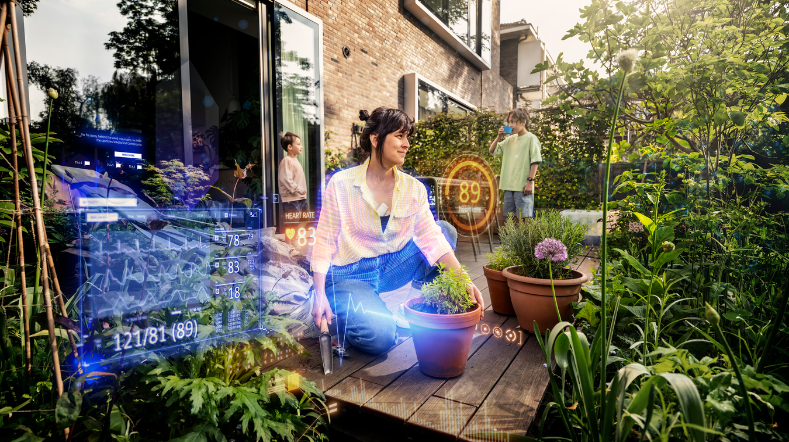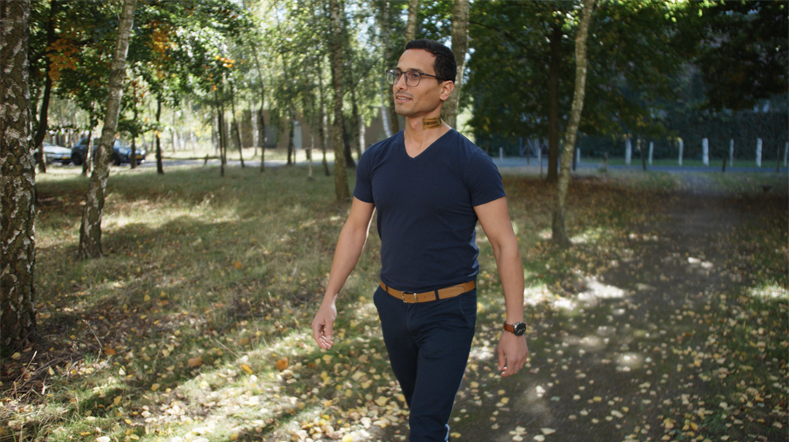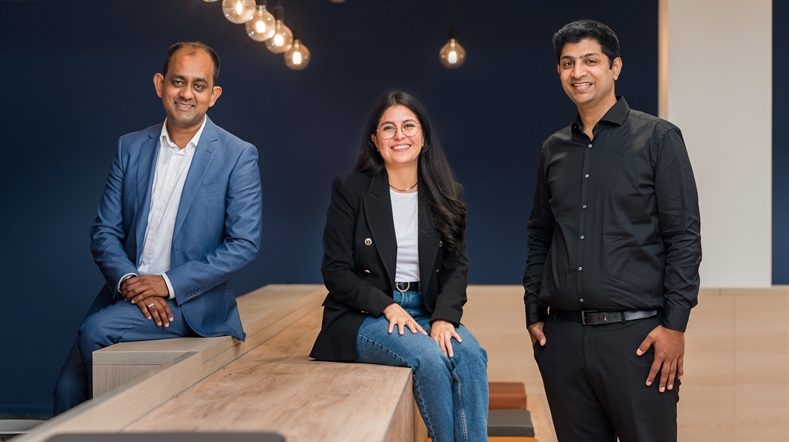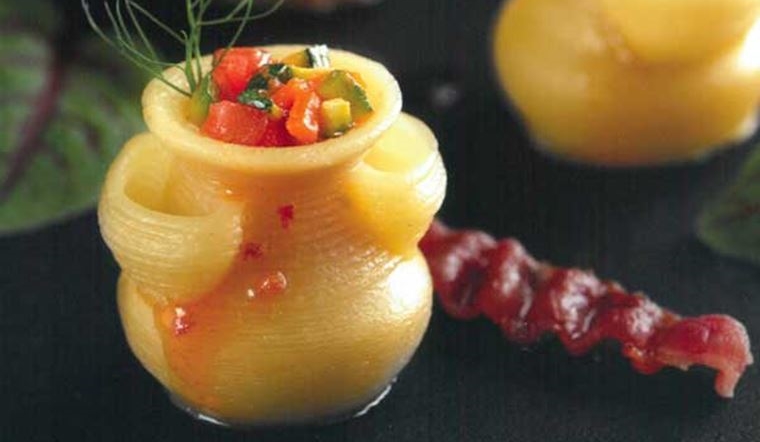
The future of 3D-printed food made possible
With personalised products, the food industry is shifting from ‘good for everyone’ to ‘good for you’. Climate change and a scarcity of resources are forcing us to develop new processing methods based on alternative, vegetable proteins. Food producers are seeking solutions to these challenges in order to maintain their competitive position. Together with DFPI, we’re taking the lead in research to establish whether 3D-printed food is an answer to our problems.
Digital Food Processing Initiative (DFPI)
Together with Wageningen University & Research and Eindhoven University of Technology, we’ve set up the Digital Food Processing Initiative (DFPI). This is a consortium that combines the latest technologies with the most advanced food research. DFPI supports food producers in their quest for tasty, nutritious, and unique products. We have facilities for both theoretical and applied research: a ‘one-stop-shop’ for all your 3D-printed food.
Beyond the standard
At DFPI we focus on innovations that go beyond what current 3D printers can do. We have knowledge of equipment, process techniques, and materials that are used in 3D food printing. This enables us to find customised solutions for the most urgent food-related challenges. From healthy, personalised food to a reduction in food waste. And from the protein transition to scaling up. Whatever your 3D-printing goal, the experts from DFPI will be delighted to help.
From unique shapes to nutritious snacks
Together with DFPI, we’ve already developed a wide range of solutions for consumers and prominent food brands. For example, our collaboration with pasta giant Barilla has resulted in the production of unique pasta shapes, and also the possibility of printing them at home. This further reinforces Barilla’s position as market leader.
DFPI is also working together closely with the Ministry of Defence on developing personalised snacks. These provide soldiers with just the right amount of nutrition they need in order to perform their tasks – from a day in a simulator to trekking 60 kilometres through jungle in full battle gear. By varying the nutritional value of the snacks, the Ministry of Defence can get the best out if its professional troops.
Flexible food production system
We’ve launched the consortium ‘Imagine’ together with DFPI, GEA, Solipharma, Tate & Lyle, General Mills, and the Ministry of Defence. The aim is to develop a flexible food production system that makes use of digital processes such as 3D printing. Such a system enables them to make personalised food products at any time, based on individual nutritional advice.
It’s still difficult for companies to translate knowledge and data on health and nutrition into attractive foods that can be efficiently produced. The consortium is focusing first of all on the use of 3D-printed food for enhancing performance in a military environment. We’re additionally looking at the possibilities of personalised foodstuffs within a rehabilitation programme for COPD patients. The technology within this project is initially being studied at certain performance levels and in a healthcare setting. But it’s expected that in the future, it will be available to all.
The food of the future
In each project, we try to unleash the full potential of 3D-printing technology in aid of personalised and healthy food. With our specific knowledge of process techniques and food science, we always take account of flavour, texture, quality, and attractiveness.
DFPI wants to develop a prominent ecosystem of companies and knowledge institutes that uses state-of-the-art technology, equipment, and knowledge to link high-tech systems to food science, so as to create a tastier, healthier world. This will deliver a profitable business case for companies that wish to distinguish themselves from their competitors.
Would you like to contribute to our exploration of 3D food printing? Or how about heading in new directions, to stay a step ahead of the competition? Please feel free to contact us. Together with the world’s top experts, we’re creating the food of the future.
Get inspired
TNO spin-off AIKON Health secures €1.2 million seed round to advance remote heart failure monitoring


TNO develops ultrasound patch for organ monitoring


TNO launches digital health spin-off AIKON Health for wearable monitoring


UK MasterChef winner Tim Anderson experiments with 3D printed pasta


